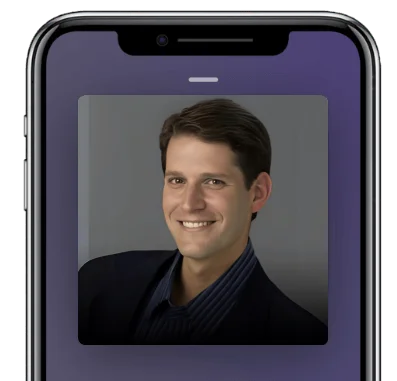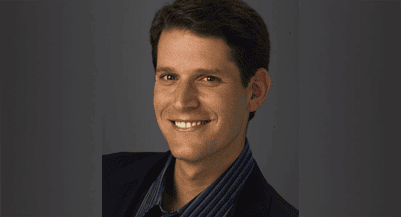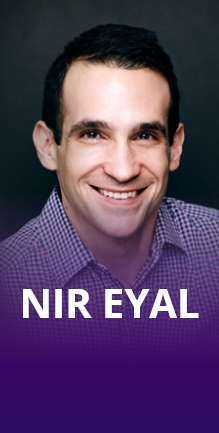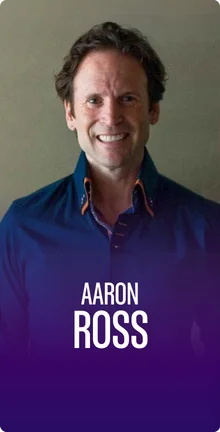In this Episode
- [00:39]Stephan introduces David Finkel, bestselling author of 12 business books and CEO of Maui Mastermind®️, one of the nation’s premier business coaching companies.
- [06:17]The difference between Time and Effort Economy and Value Economy based on David’s book, The Freedom Formula.
- [14:19]The distinction between a Grow player and a Role player.
- [21:36]David shares how the Kolbe personality assessment helped him find his great assistants.
- [27:20]David explains how the Direct vs. Indirect behavioral style is interpreted to understand better or get along with somebody.
- [33:20]David elaborates his approach to coaching a client based on their business level.
- [39:14]What are the four types of personal assistants?
- [46:29]David shares how Jeff Hoffman is one of the mentors that made a significant impact in his life, sharing a story on how humble Jeff is since the day he had his first startup.
- [51:00]What is a Big Rock Report and how to apply it to structure your business strategically.
- [57:11]Visit the website freedomtoolkit.com to get lots of free resources and follow them on Facebook, Maui Mastermind, to stay updated.
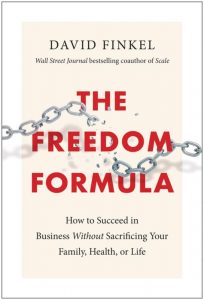
So it’s great to have you on the show, David.
I appreciate that Stephan, I’m glad to be here.
So first of all, I got to know. How can you be so prolific with 12 books? It was harder than heck to get three published, and I had co-authors for two of them. That’s like a monumental feat. So how did you pull that off, and why?
You know it’s interesting, everyone has things they love to do. For me as a kid, I had a manual typewriter. I still remember it was an old Royal typewriter. This tan box that had this satisfying click and snap as you would type the keys- so I’ve always wanted to do the writing side. About every two years, I get really excited. I’ve been teaching a body of information to coaching clients and people we work with. Then I step away and think, I’ve been teaching, working on workshops, webinars, and then putting in writing. For me, that’s just enjoyable. The first half of the book is painful, but I’m pretty dedicated in that respect. I just set a goal twice a week, Tuesday and Thursday, I write 1500 words per day on each of those days at a minimum, usually closer to 2000-3000 words. I ended up writing about 130,000-150,000 words per book. And then I just edit back all the way back to 65,000-70,000 words and then rewrite it about five more times.
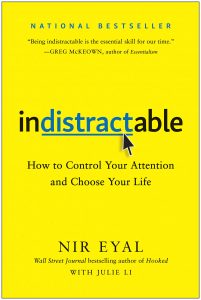
That’s amazing. So I’m in a Facebook group with a bunch of writers. You should be in that group there’s a bunch of really cool people there. But one site that I think they should interview you if they haven’t already is writingroutines.com. They dig up the daily habits of writers on how they get such a prolific body of work done and not get so distracted by all the daily minutia and social media. Everything like that. Which incidentally, was the topic of one of the past episodes with Nir Eyal. If you don’t know him, he’s the author of Indistractable. So let’s talk about the business of writing. You are providing coaching, masterminds, you have presumably gotten a lot of coaching and been a part of other masterminds. So why hang out your shingle in that regard? And it seems like there are more coaches and masterminds out there that you can shake a stick at. Do we really need another coach, do we really need another mastermind? But what you have is different from your Maui Mastermind and the coaching that you’re offering. What makes it a unique selling proposition compared to everything else out there?
Well, I appreciate that. I started as an athlete, played field hockey in the US national team and was training for the Olympics then I got a tumor on my hip. Coaching has always been a big part of playing semi-professionally overseas that I saw the impact. Here’s the crazy thing, my grip was off by a quarter of an inch on how I held my stick, that quarter of an inch changed everything. A guy that was on the New Zealand national team for a number of years was a team captain when I played in London, England, for a club team there. That one little quarter of an inch twist changed the entire style of how I played. In the business world, when I started, I didn’t know much about business at all.
Over the years, we found our niche, which is helping owner reliant companies. These are companies where the owner is at the center, and their business works, but it only works because they’re making it work.
I had an early mentor who probably, in our own ways, coached each other. I was one of those people who was always very disciplined, always knew how to look for efficiency, and he was someone who knew more about the business side. And we built a coaching business together, at a high point, we were working with about 2000 coaching clients a year. I sold that in 2005, it was at the end of that. Maui Mastermind was something that we’d already been doing. This annual event in Hawaii for our top-end clients, and I kept it. I tried retiring for about a month and a half, and I just didn’t do well with that. I’m not the person who is not going to do something. I really enjoy teaching, learning new things with the bent of how I would put it together, synthesize it, teach it, how would I make it simpler, better, and how do I operationalize X or Y. Over the years, we found our niche, which is helping owner reliant companies. These are companies where the owner is at the center, and their business works, but it only works because they’re making it work. How do you help them both scale and increase its owner’s independence, so that the company has a life beyond just the owner and the owner has a life outside the business? And that’s really what we’ve focused on for quite close to 18 years now.
Gotcha. And that’s a constant problem in businesses, where you’re the bottleneck as the owner. And you’re working in the business as much if not more than on the business.
The saying, 'if you want something done right, you've got to do it yourself' unfortunately constrains the business. It's absolutely not the best business lesson to learn. Share on X
Think about the causes for that; one of the things we wrote about in The Freedom Formula was the idea that these two different economic models exist. One is the Time and Effort Economy, where you get paid for hours of effort and perhaps a little bit of attitude. Then you have the Value Economy, which says I’m not getting paid for hours and effort. I need hours, I need some effort, but I’m getting paid for the value that I’m creating economically. The best entrepreneurs and executives all know that truly they’re on the payroll for some particular purpose. We talked about the five chains that hold you back, one of them is what I call Controlitis, it’s the inflammation of your control gland. It’s the business owner who’s so scared and so tightly gripping on, and I get it, we’ve all had experiences. Stephan, you’ve had experiences where you’ve handed something off. The person you handed it to, didn’t do it the way you wanted it or when you wanted it, and so what happens is we generalize that out. If you want something done right, you’ve got to do it yourself. And unfortunately, that constrains the business, and it’s absolutely the wrong lesson to learn. The lesson to learn should be, how do I hand off more effectively? How do I make sure that I’ve hired and onboard the right people? How do I have the right internal systems and control so we can make sure that I don’t do it all myself, that’s a real danger point.
Well, the problem was in delegating the task instead of delegating the outcome.
Yes, the functional responsibility for something versus do it this way, come back, and I’ll tell you what you should think and do next. But a lot of the people we initially work with. I’m a recovering control freak, I will be the first to say it, my wife will be the second to say it. However, she might not call me a recovering control freak; she’ll say something similar. The point is that so many of us are, and we have to learn to be more comfortable with not being in control. And that’s a tough one for business people.
Well, the more you’re trying to control, the less influence you have. And the less you control, the more influence you have.
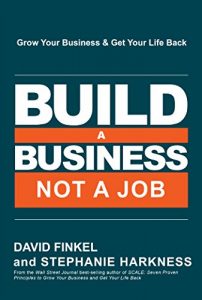
Absolutely true. It’s funny, and I have a friend of mine who I wrote a book with. I think it was the Build a Business, Not a Job, I had to think which one it was, her name was Stephanie Harkness. She’s a phenomenal mentor. She has a successful marriage for 50 plus years, raised two kids, built 100 plus million dollars of companies, and is the former chairperson of the National Association of Manufacturers. But she challenged me before, and she asked me to write on an index card. She said, “David pull an index card.” and I did, and she said, “Write this question down, and the next time someone in your team comes to you, and says, “What should I do here, David?” you read the index card and remember me.” And she made me write down, “I don’t know, what do you think we should do here?” And then, about a year later, I flipped the card over and wrote down. “If I wasn’t here, what would you do?” And I started asking those questions fanatically when people brought me things. And what happened is the easy stuff started disappearing, they just handled it. But the tougher stuff would still filter to me, but I could coach them to handle it themselves so that we would grow their capability, not just me giving them the reflexive answer. And I don’t know about you, Stephan, I like having the answer. It feels good, and I like my ideas. They’re good, I think. It’s a little obnoxious to say, but learning to let go and letting other people do it differently, letting them when the stakes are low, do it perhaps even wrong, not when the stakes are high but when the stakes are low. Doing that over time, it’s really transformed for myself, and I’ve observed them doing the same thing for all the client businesses, so it’s a fun dynamic.
Well, and to not do that, you become Pointy-haired Boss from Dilbert if you’re familiar with that guy.
Yes.
We don’t want to be Pointy-haired Boss. And the epitome of that micromanagement is one comic I remember from Dilbert. He’s at the computer, Dilbert is working at his computer, he’s got his hand on the mouse, and Pointy-haired Boss has his hand on Dilbert’s hand on the mouse.
Controlling him.
Yes. We don’t want to be that kind of micromanager. Now, you mentioned something I’ve really wanted to latch on to, and I love this concept from Stephanie. That you have this index card, “I don’t know, what do you think?” What a powerful question or positioning. First of all, to admit you don’t have all the answers and then secondly, to put it back in their court with a powerful open-ended question. And another example of one of those kinds of questions that you could ask of people that report to you, colleagues, boss, friends, or family loved ones is “What did I not ask you that I should have?”
Oh, I love it, that’s a great one here. What should we be asking that we’re afraid to ask right now or we’ve been scared or avoiding to ask? That’s great. I love these. I actually bought on Amazon a laminating machine for myself because I have several of these cards that I can rotate through. One of them that I’ve really been enjoying was the question, “What is the question we’ve been afraid to ask, we’ve been delaying or putting off?” But I like what you’re saying, ‘What should I have asked?’ That’s a great question.
Yeah. This concept of having an index card, what about having a post-it note, right? And that post-it note might have something on there. That’s a reminder to just stay the course, or be more intentional, or have a bigger viewpoint and see the bigger picture. Have a more open-minded stance about things, or be more just meta about things, thinking about your thinking. One example – I learned this from James Schramko – is to have a post-it note on your computer that says, “Would Richard Branson be doing this?”

That is great! That’s calling you to a pretty high standard. I love that. I always like to find simple, easy ways to get things to be clear. And a friend of mine who actually wrote about the story in the book, he gave me another one that I put on a card which was “can’t do, won’t do, don’t know how.” It was a really good way to frame it, especially when I’m working with someone on my staff that has not managed before. So they have someone that they’re managing, and that person gives them a challenge, before I make up all the stories that all of us do, I ask myself, “Is it that they can’t do it, that they won’t do it, or they don’t know how?” Just pausing and asking that, obviously, we treat the can’t do versus the won’t do very differently. They don’t know how it is a training issue. And so I found that was another one that would probably fit well on a post-it note or an index card.
I like that. Well speaking of giving a team challenge, what about giving the team a challenge that is a test to their character, and to see how leadership-oriented they are, or if they’re just a clock puncher? I’m in the midst of doing this right now with my team. So they have a challenge: they need to imagine themselves as the owners of the business. What would you do in this situation? I laid out the situation, this real situation that we’re in. “If you were in my shoes, what would you do?” I’m waiting to get all the responses back, some people are putting quite a lot of thought into it, writing up a Word document or a Google doc and some are probably just going to riff not having prepared at all. And who knows, we’ll see. But it’s an interesting exercise, and I’m curious what your thoughts are on that, and maybe how I could up my challenge giving game.
A role player is someone who says, ‘You know what, I just want to do a good job, and be done. Don’t put me in situations or challenge me, just let me do what I do well and stay out of my way.’
Yeah. So, Stephan, I would go one step back. So one of the things I’ve learned is that there’s a really useful distinction in a company between what I’ll call a “grow player” and a “role player.” And understanding this will save you so much frustration. A role player, someone who says, “You know what, Stephan, I just want to do a good job, I just want to do my job and be done. Don’t put me in these situations, don’t try to challenge me, just let me do what I do well and stay out of my way.” A grow player says, “You know what, I want to do a great job. But if I’m not challenged. If I’m not growing, then there’s something I’m missing.” And the frustration people have is they try to manage a role player and a grow player the same way or to push a role player to grow. We’ve got a client of ours. Her name’s Lana. She runs a law firm, a very successful practice. She’s got a guy who works for her who is very good, but he’s a role player, he has been with her probably over a decade. And she was talking with me in one of our conferences. She said, “Well, I want this guy to grow.” I said, “Well, Lana, does he want to grow?” “No, but he’s so much better than this.” I said, “Would you like him to quit?” She said, “Well, of course not.” I said, “Well, then stop asking him to grow. He doesn’t want to grow.” And so if I can make that distinction, now that I know that, first of all, it’s not what they say because everyone says out loud, “I want to be a grow player” because it’s the polite thing to say or the respectful thing they’d like you to believe to be true.
It’s the politically correct version.
But there are two tests to tell if they’re a growing player. Number one, how do they receive feedback? A role player almost always will defend, minimize, push away, or come up with all the rational reasons. A growing player will say, “You know what, I hadn’t thought of that. Thank you. I can see that I can do this better.” And you’ll see them take that in. The second thing is, are they actively going out of their way to learn and take on uncomfortable situations? So your challenge will help you see some of that. But going back to it, if I have a role player, I want to be very much coaching them or managing them for a result. “Joanie, will you do x by this date in this manner? And then close the loop and let me know you’ve done. Can you do that? Great!” A grow player, I’m going to say, “Carol, I’m thinking we need to do something here for this purpose. If it was you, and it was your project, how would you approach that? Tell me why. If you couldn’t do that, then what would you do?”
A grow player says, ‘You know what, I want to do a great job. But if I’m not challenged. If I’m not growing, then there’s something I’m missing.’
“Is there something better about the second choice that you would bring into the first? What would be your first step? Is there any missing information?” “Wow, hearing all that. Carol, I think you’re on the right track. I can’t wait to see what you do with this. How frequently do you think I should be updated about it?” I ask questions, and I coach for development, so not only do I get the result, but I get the growth in Carol, so she has more capacity or capability in parallel. So I think that’s what I would share, asking the question was a great start, but I would tell anyone listening to this, if I’m managing a team, I should go through person by person and just define or try to get a clear understanding, grow versus role. And most will be obvious, but probably 10 or 20% won’t be, and those are the ones I’d put little mini-challenges on to see which way they go. I watch what they do when I give them feedback. It’s just so revealing, and it’s so obvious when you look for that distinction.F
In that hypothetical person, was her name Jany or something like that?
Joanie, I hope there wasn’t a Joanie I’ve offended there by saying a role player, by the way. We want grow players, we do, and we want role players who are good or essential.
So Joanie, the way that you managed her, hypothetically here. Was it almost like you made it her idea by coaxing out? Like, “What would you do next, and how often do you think I should be updated?” It’s like you made it her idea to update you and to do it this often, or to get you this particular outcome, or hit these certain milestones. And I love that because then they take ownership. It’s just brilliant psychology.
Hiring the wrong people poses an extremely huge risk for company loss. What happens is they disrupt everything. Share on XThank you. Good coaching and good management are just some simple fundamentals. I think that in 24 years of coaching other people in business and another eight years coaching athletes, you learn that some people need the direct, “Hey, you need to do this by this date by this time.” But people who want to grow if I direct them too much, what happens is I lose all that growth with it, I lose that second meta-layer by me role modeling with them, how that they can become better for them to manage the next generation of leaders. What a shame that would be.
Right. Makes total sense. So somebody is a growing player, which sounds like they like getting outside their comfort zone. And that’s good because we want people who are comfortable with being uncomfortable. That’s how we get the performance out of them, that’s how we get them to crush it for themselves and for us. But the role player sounds kind of like a clock puncher, in those different modalities or frameworks. And the clock puncher is one of the terms that Aaron Ross has on his book From Impossible to Inevitable, I had him on the show, and it was a great episode. I’m curious, of all the different modalities and frameworks that are out there, just like EOS (Entrepreneurial Operating System), I just had Gino Wickman on this podcast. In fact, that’s how I got to know you. He introduced us.
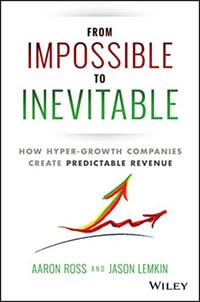
There’s the E-Myth (Entrepreneurial Myth) and the framework involved with that and kind of doing a skunkworks sort of situation rather than reinventing the existing business, you start a new one on the side. So that’s Michael Gerber, I’ve had him on the podcast. There are also different personality assessments and ways of analyzing what kind of fit the person is, whether it’s Kolbe, PRINT, The Predictive Index, StrengthsFinder, Myers Briggs, or DiSC. So there are lots of ways to ascertain the person, and there are lots of ways to figure out what the roles are, and the seats on the bus and who should be in what seats. So I’m curious, what are your favorites? Because you’re certainly a subject matter expert having 24 years of experience of coaching. So you must have glommed on to certain frameworks and certain types of assessments more than others, which ones are your favorites, and why?
Great question. I’m gonna go back to something here, which is the role player, a good role player is worth his or her weight in gold, you need them. They’re not a clock puncher, they’re the person who will diligently grind out a result, and you can count on it. But just let them do what they like to do, don’t make them do something they’re uncomfortable with. Let them do the same thing for 20 years for their career, and they’re happy. Which would drive me insane, and obviously, you and I would be bouncing off the walls after two years or after a year probably.
Oh, Two weeks.
There we go. Okay, so going back to Kolbe. I enjoy Kolbe, which is a personality assessment. They have their Factfinder, Follow thru, Quick Start, and Implementer. That one has been useful. I found that the distinction for me was most helpful. There was recognizing that when I’ve looked for assistants. One of the things we talked about in the Freedom Board was how to find and leverage an assistant. Early on, I went through a lot of assistants who were clearly the wrong fit, and I realized that their level of Quick Start was really important. So in Kolbe, you have the three thirds, below 1-3, 4-6, then the 7-9. I don’t know if anyone’s ever been a ten on a Kolbe for a score or not. I’m a very high Quick Start, eight or nine depending when I take the test. Quick Start is my comfort with ambiguity. If I have an assistant who is at 1,2, or 3, it will not work. These assistants are too anxious for me to be around not because of them, but it doesn’t fit my personality.
A good role player is worth his or her weight in gold, you need them. They’re not a clock puncher, they’re the person who will diligently grind out a result, and you can count on it.
So 1,2, or 3 in Quick Start.
Right. So when I look at Quick Start, you think, “Oh, I want a great assistant, I want attention to detail, great Follow thru. I want someone who can get stuff done themselves, an Implementer.” What I’ve learned for me and the assistant side is that I need someone who’s somewhere in the 4-6 range of a Quick Start. This is someone who’s comfortable with ambiguity but doesn’t crave novelty. That’s important because many of the things my assistant does have carved out for them. I’ll leave a quick audio message through an app, and I’ll just kind of sketch it out, and they have to figure it out. Well, back when I used to have some people who had very low Quick Start, that was very anxiety-provoking for them, and I didn’t like managing that for them at all. If they’re too high, then I get another me, and that’s clearly a bad situation, one of me is plenty.
The next thing you know, they’d be starting a business. Like, “What? I just trained you on everything I know that was so valuable.” “Thank you. I just started two businesses last weekend.”
That’s right. So going back, I’ve enjoyed Kolbe. I have not found anyone that has been so perfect in any way. I find that they’re good for flacks to teach me something about a piece of human behavior, like the Quick Start part. It would never have occurred to me that there’s a way to think about somebody with how comfortable or fluent they are with handling ambiguity. That’s a good one for me to know an Implementer on that scale. It’s about how much I want to be getting in there and doing something tangible concrete with my hands. Well, that to me is foreign, and most times for the assistants, I have to be careful. So I’ve got two assistants now. Tiffany, I can tell even I didn’t make her do the Kolbe. She is actually quite high on the Implementer, very clear she likes to get stuff done. She’s local to me, and I get about 15 hours a week from her. Emily, who’s far away, about eight hours drive, does about another 30 hours with me each week, and both are phenomenal and world-class as a team. She is not nearly as high on the Implementer, but she’s got really good Follow thru. And if I were to guess, she’s probably a five or six on the Quick Start. She can say, “Yeah, I got it, David, I’ll figure that one out.” Whereas I’ve had other assistants that say, “Well, hang on. What about this?” And “Oh gosh, what about that?” and you could see the nervousness come off of them and ways of anxiety, which I don’t want to be around that.
Well, that also could be exposed through having them do the PRINT assessment or PRINT survey. Are you familiar with PRINT?
I’m not. Tell me about this.

I love this one. I just interviewed the co-founder of PRINT, and the co-creator of it, Debra Levine. So the idea behind this is that we have these unconscious motivators, and listeners you’re gonna have an opportunity to listen to that episode and so you can get it right from the horse’s mouth, so to speak. And I’m going to not do this nearly the justice that it deserves because it’s an incredible assessment. But the unconscious motivators are like the part of the iceberg that’s under the surface that you can’t see, but it’s the majority of the iceberg. The unconscious motivators drive us to do what we do, and we just don’t know about it, It’s kind of running in the background. It’s our reptilian brain or mammalian brain that’s kind of driving the bus. So if we can understand what those unconscious motivators are, and with this assessment, there’s two, there’s a primary and there’s a secondary, or a major or minor, then you can figure out what triggers people to go into their shadow self instead of staying in their best self. And it sounds like when somebody gets all freaked out like I don’t know what to do, I don’t feel comfortable here, that sounds like you’ve hit one of their triggers, which has an underlying unconscious motivator that they want to be perfect. If it’s not perfect, then the wheels come off the bus, which is a mess.
I love that. It’s interesting, there’s another assessment, but I don’t remember the name of it, that would put that person in what I would call a “Relator,” and what they care about is their greatest fear, the fear of embarrassment, of being caught in a situation where they weren’t prepared for, or they look bad in, or they feel out of sorts. And what you’re saying rings true for me, I’ve actually written that down. Thank you. That’s what I’m going to check out more.
Yeah, so I heard about that from Strategic Coach, which I’m part of, so that’s Dan Sullivan’s program, which has been great. And I really enjoyed that PRINT assessment, and then to interview Debra was just phenomenal. So you don’t remember what that assessment that has the Relator type?
I don’t remember that, but the 60-second version, it’s

pretty interesting. You look at two different axes, one axis is how Direct or Indirect you
are, are you more process-oriented Indirect, or more goal-oriented to the end result. And then the second question is how open or self-contained you are. If I’m open, that means how much do I look for other people to make my decisions, and if I’m self-contained, I do it myself. So if somebody who is direct and self-contained, we call this person a director, what they fear is loss of control, what they desire most is result, what they really get annoyed by is wasting of time. Just give me the bottom line they want it short, fast, quick and easy, prototypical business leader, the lion type of person. Somebody who is Indirect process-oriented but very self-contained as a thinking style, this is the prototypical engineer. They want to be complimented on their thinking process. They hate being rushed. They fear being rushed in their process. They don’t like to go fast. They figure if I check all the boxes, I’ll get to my decision, I don’t need anyone else’s input, but I need to go through my process, whatever this algorithm I’m using for this. Somebody who’s indirect and very much open, they’re influenced by their people that are Relator. They fear embarrassment. They desire emotions; what they desire is connection. Great number two person in terms of a support player. Many of my best assistants have been Relators. They just would move heaven and earth to help care for somebody else. And then you have what I think this model would call a Socializer, very much direct person but very open. What that means is other people very much influence them. They want fun, they’re looking for novelty, they’re the life of the party. And so this person fears routine, boredom, this person is motivated by a sense of status. So that’s an example of another one. I think some elements are helpful, and I always look for the drives that people are really craving and the things that they fear and I think both those things are important and what frustrates the heck out of them, what comforts them. Those are four elements that I always look for and whatever assessment I’m looking for, to better understand somebody else. They’re shortcuts to better get along with somebody.
Gotcha, is that Dr. Tony Alessandra‘s work?
So he was one of the people I’ve heard that through. But I’ve also heard Gary Chapman’s use that same model, although he turns it back to animals, otters, and golden retrievers. But I don’t know who created it, so I don’t know who to give credit. I’ve actually heard four different people use the same model, but I don’t know who created it. If you know, I would love to be able to give credit to whoever created it. It’s a useful shortcut for that.
What I've learned in the last 10 years is I need to clarify my own needs first so I become a better delegator. Share on XGotcha. Yeah, very cool. And so there are different ways of analyzing a person’s behavior and their kind of patterns and their ability to pattern recognition and so forth. They’re also ways of analyzing how the world sees them instead of how they see the world. That’s how Sally Hogshead does it, for example, with her Fascinate Archetypes. So she’s got a primary and a secondary strategy. Their strong and their second strong, or their weak, secondary feature. And then they’re on this grid as being a particular archetype. And I found that really interesting, too. I took that assessment, and I agree with it, as far as how it assessed me, and how the world sees me. That was pretty cool.

StrengthsFinder is one of my favorites, it’s from Clifton, and the Gallup polls. There’s also DISC which I quite like, so the DISC assessment helps me to see if somebody is very detail-oriented if they have high C for Caution, that’s a good sign because I’m looking for somebody as an assistant who would be very detail-oriented and not somebody that’s super domineering like I am. So if I have a high D and they have a high D, then we’re gonna probably bump heads. I’m a 9 Quick Start by the way, so I am all over the place, starting fires, creating things constantly from one thing to the next like, “Oh a shiny object, squirrel!” All the time.
Are you currently looking for an assistant right now? I’m just curious.
I’m always looking for assistants. Yes, because even though I have some fantastic assistants, what I’m missing most of all in the business, I think is the Integrator, if you’re familiar with that concept. I don’t have that second in command sort of operations person. Apparently, there’s only 1% of the population that are integrators. 5% of us are entrepreneurs, but that’s still pretty rare, rarer than hen’s teeth are the integrators, and I really need one. So I have this problem that you described earlier, of being in the business working in the business as much if not more than I’m working on the business. And I’m stuck operationally kind of juggling everything and making sure everything keeps moving “owner-centered” to use your terminology.
So if I were coaching you, I’m going to challenge you a few things, and this is healthy, this is what a coach’s job is, to be from the outside giving you some perspectives that you can’t see for yourself. Not that I’m right, not that I’m wrong, not that you’re right, not that you’re wrong. So this is good, we’re gonna role-play this for everybody.
Let’s do it.
Level one is the pure startup that is just getting ready to launch, and Level two is on a reliant company that has three stages to that, early-stage level two, which is now I’m trying to reach the point of profitability, where I’m consistently making a profit where I’ve reached the point of sustainability.
All right. So most people look for the knight in shining armor on a white horse whether this is a male knight or a female knight doesn’t matter. So they look for the Integrator, and the problem with that is to find that one person. Number one, most businesses aren’t to a point where they can handle that, and so generally it’s not a great strategy as has been my experiences. Instead, here’s what I would coach someone to do. If I find that great person what happens is, I move the reliance from my shoulders onto his or her shoulders, now I have an integrator-reliant company, and that’s not what I’m looking for. It’s improved now I have two shoulders, but instead, the way I would coach a client as we think about each business has five pillars, right? Sales, marketing, operations, finance, HR team, and then executive leadership. So if I can think about it as a smaller move, I don’t need to find someone to be my number two for all the pillars. Depending on where I am, there are three levels to every business. There’s the level one, level two, level three. Level one is the pure startup that is just getting ready to launch, and Level two is on a reliant company that has three stages to that, early-stage level two, which is now I’m trying to reach the point of profitability, where I’m consistently making a profit where I’ve reached the point of sustainability. Middle stage level two is a business that functionally works well. It’s profitable, sustainable, but it only works because the owner is right there at the center, that all the key decisions come back to the owner, and all the key client interactions come back to the owner.
That’s me.
Okay. Advanced stage level two is when you start having two or more of these pillars being owned functionally by someone else. And then, level three is an exit stage company. You can scale it, sell it, or transition to passive. So let’s go back to most of who we work with is that middle or advanced stage level two. Looking for an Integrator at your level, two things are becoming really challenging. Number one, it’s a high-risk move, you’re putting all this on one person, if they don’t work out, there’s a lot of mess to clean up with a lot of disruption. And it’s a fairly expensive hire, to find someone who really is capable across the way. It’s the equivalent in rock climbing, what I call going radical, you’re going to have to let go of what you’re currently holding on to get there. It’s a risky move. Higher odds move to say, “Okay, how can I start to incrementally replace myself in areas that my business, through the current team that I have better systems in there, and or perhaps hire for a pillar of that?” Since I’m probably more of a sales marketing bent, and obviously for your business, you’re more of the marketing, creation, executive leadership, you might need that operations person, but I’m not going to look for a COO hire who’s over everything.
I’m gonna look for a manager for that pillar of the company. If I have the current people, I can grow into it, great. If I don’t, it’s a much easier move to find one of the pillars, and then when I have one of those pillars that are 80-90% reliant on somebody else doing that versus me, that gives me both the courage and likely the cash flow to take on and tackle another pillar. From then on, I’ll have the courage, the cash flow, and the experience to tackle the next. And if I do that, over the course of 24-60 months, two to five years is what we typically see. Now I can be at either an advanced stage level two or level three business that truly is independent of me, the owner, but that’s how we would progress it. So if you were a client, that’s how I would approach it.
Yeah, that’s good advice. I really like that. And that’s kind of the approach that I’m taking. If I do see somebody who I think could be a really good integrator, and I did interview somebody earlier this year, right before the pandemic really got into full swing. And I didn’t push the button on that. I didn’t take that leap. And in retrospect, thank goodness because that would have been a very expensive hire, six-figure salary plus bonuses and we’re in a very difficult time right now, on the precipice sort of time for many businesses. I’m not at risk of going out of business, but I couldn’t afford that level of person right now. So I’d be hiring them, and then I’d be letting them go, that would suck.

And what’s interesting is not only would it hurt from the cash flow perspective, but once you bring him in the mix with them touching everything, if you haven’t made the right hire, or you haven’t brought them on the right way, what happens is they disrupt everything versus if you have a pillar leader, you’ve contained them to a degree in one of five or more pillars of the company, that’s been my experience. I found a bit more of a conservative tack while it goes slower, and we are all able to turn over and hand everything to Sally. That’s not necessarily been the strategy I found as the winning move in most cases. If I were an advanced stage level two, and I already had pillar leaders to find a COO, I probably have the cash flow, I have the infrastructure, I have people that are there to backstop this person, all the right elements that make an integrator hire much more a co-hire much more likely to be successful, but I don’t have that at a middle stage level two.
Interesting. So you asked me the question, am I looking for an assistant? So I have some great team members and assistants included in that mix. I don’t manage my own email for the most part, for example, but I want somebody as an assistant who is super detail-oriented and is able to keep track of all those details, an executive assistant, not just a VA.
So it’s interesting. This is funny that the most popular article ever written for Inc. and I don’t know why it struck a chord, but the subject was the four levels of assistants. And I mean, even to this day, I probably have 100,000-150,000 people read that article every year. Here we are three or four years later. I have no idea why it struck a chord.
I’m gonna read that by the way, that sounds like a great article.
There we go. And I love how you do the checklist by the way from that part, I’ve been on a lot of podcasts, and you’re the only one that I’m aware of that’s ever given me a summary of every podcast so I can kind of look at what it is and sample it before I spend the hour listening to it, which I thought is absolutely brilliant.
Thank you.
So you have a Gofer, right? “Do this, do that” no one wants a Gofer. You have an assistant that can do discrete, defined tasks, but you better define what they are, that’s your VA. Then you have an executive assistant who can handle administratively pretty much any administrative function, even if it’s not cleaning clear, they can handle ambiguity, but don’t take them out of administrative things. Don’t make an executive assistant do the negotiation on a sales thing, don’t make them step into figuring out a vendor con, you gotta be careful, they’re comfortable but only to a point. And then you’ll have what I call a chief of staff. This is somebody who knows the purpose that you’re trying to accomplish and can handle your own personal COO.
Go for someone who could handle ambiguity, someone who can handle the administrative part better than us.
A few people that run companies that are under $50 million will always have that level of an assistant. Because when you do, they literally will be your COO, and I know it because Teresa, who works for me, started off 12 years ago, she was my assistant. And she is now our company, COO. Now, if I were running a multi-billion dollar company, I probably could have kept her as my personal chief of staff or my personal COO, but she was way too talented to stay in that role for me. It was too much of a colossal waste of talent for her staying in that role. So for most of us like you said that executive assistant and that’s the level we’re probably going to go for someone who could handle ambiguity, someone who can handle the administrative part of what we do better than us, cleaner than us. “Hey reminder, Stephan, you’re supposed to be on there with David in five minutes, get off that get over here.” And that is wonderful when you find that person, someone who’s got the grace to not be obnoxious, but the backbone to challenge you when need be, somebody who’s willing to say, “You know what, I’ve got that.” And you’ve seen over time that they truly do. I’m curious for you; I made a mistake on the assistants because I used to focus too much on what I’m looking for. And what I’ve learned in the last probably 8 to 10 years is I need to get clear on my own needs first in terms of my personality styles, so I’m an auditory delegator, so I want somebody who is comfortable with me giving messages to. I’m pretty much an introvert, so I don’t want somebody who is going to feel like I’m ignoring them by not having personal chitchat. I don’t want anyone to send me an audio message. It would drive me crazy. I want them to put it in an email so I can read it much faster. I want one long email that’s numbered versus ten different emails, I want an email with the ten things in it, and it’s easier to handle. But everyone’s different from that. Are you an auditory delegator, a text delegator, or a meet with me delegator? How do you like to delegate?
Meet with me.
Okay. Do you have them record when they meet with you?
Yes.
Great. Okay. And when they give you information, do you prefer them to wait for the meeting and give it to you then or would you rather have a written summary or you want the big detail how would you prefer that?

I like it organized and put into Asana and a reminder in an email that links to that Asana board, instead of them assuming that I’m going to go into Asana and see if they’ve updated it. And I don’t want it all just vomited into an email thread. I want the bottom line, and I want to be directed to something that’s nicely, tidily organized.
Got it. So knowing that about yourself, number one you’ll hire better but for number two your hiring processes when you actually start onboarding somebody, in that hiring process they’re going to get a sense while they’re trying to be still convincing you that they’re the right person. They’re going to get a sense of what part of the onboard is what I’m looking for. And it’s interesting you both inoculate them from the darker parts of you. Like for example, for my assistants, I often will make a joke, “Look, there might be weeks that we actually don’t have a conversation and if that would be something that you would feel ‘Oh no is David mad?’ then we have the wrong fit.” Right? So we can inoculate against our shadows. But we can also say that this is a chance for us to start the training before they ever start. So I love what you’re doing there with your Asana, you know yourself very well. I want the email, don’t make me look at the app, prompt me to go back there, don’t give me a blur, and give me very structured information. That’s great. You’re gonna make a good hire because you know yourself so well.
Yeah. Awesome. So clearly, you’ve got some great mentors and coaches for yourself over the years. This is fabulous, it’s not just all from reading articles and books, I’m sure. So who have been some of the standout coaches and mentors that you’ve worked with over the years, and why?
A good role player is worth their weight in gold. You need them. They're not a clock puncher, they're the person who will diligently grind out a result, and you can count on it. Share on XOkay, so I mentioned Stephanie, and I think probably her biggest impact was somebody who has just a tremendous whole life success that was very important to me. I’ve got a friend of mine, his name’s Kieran, who is a very successful man, a client of ours as well. But really over the years, I’ve always looked for mentors who have more than just business success, like I can watch someone in the business world, and I’ll pick up the good stuff, and I can ignore that all of us have feet of clay and all of us have parts of us that aren’t necessarily pretty. But I’ve always resonated with people who have a certain value where, for example, Stephanie gave me three questions that she uses to make good business decisions and life choices. Before she makes the final choice, she says, “What’s most important for the sake of what, and how much is enough?” And she showed those questions to me when I was 37-38 years old, right before I had my kids, I’m 49 now, a time in my life where I was thinking I wanted to be the billion-dollar company builder. And I didn’t really think about what I value most. I’d already kind of achieved what I recognized in the past that I was what I really wanted. But I was about to just ignore and have no gratitude for it. And this pursuit of filling up the part of me that felt empty.
Yeah. And at what cost to? So you built a billion-dollar business, and you end up divorced because of what you had to give up. Right?
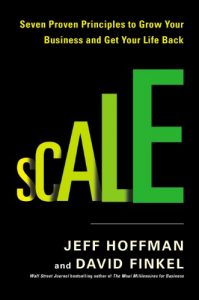
Right. And I’m not saying I have to give up to do that because people who’ve done it before have been able to keep wonderful relationships. But for me, she has been a great prompt or reminder about whole life success. So that’s always where I’ve gravitated to the people I’ve wanted to spend time with. I would consider one of my business mentors, Jeff Hoffman, who I wrote Scale with, from one of Priceline‘s founding team members. But I’m really good about pulling, modeling, and taking out pieces from people where I don’t have to take the whole of them because there aren’t a ton of people whose lives are lived in such a way that I would want to emulate their whole life. When I find them, those are the people I love to keep relationships for decades. But the others, I’ll pick out an interesting choice that they’ve made that I can use in my business life and ignore or let go of the other part. The people who’ve made the biggest impact on mentors, like the Jeff’s, the Kieran’s, the Stephanie’s, are the people that have a life that I actually admire, a value structure that resonates for me. Not that they’re the right values, but they’re closer to what my values are.
Yeah. And speaking of Jeff, I didn’t read your entire book, The Freedom Formula, but I read part of it. You had a nice story about Jeff in there about how he was checking in on the team, like “How can I help speed up this project or anything I can do to contribute?” Someone kind of in a flippant way said, “Yeah, you could pick up my dry cleaning.” And he said, “Give me the ticket. I’ll do it.” Instead of like, verbally berating the guy for being cheeky. He’s now whatever it takes to help keep this team on task working on what’s important and not distracted by the trivial stuff. “I’ll do it.”
And that was his first startup, by the way, sold it for $20 million. And what a great lesson, right? Exactly the price of getting someone’s dry cleaning to show everyone in that room, which was his programming team, that we’re working on their next release under a tight deadline of a travel software program. It’s like, “Yeah, the most important thing for me to do is to keep you producing in this room, you need food? I’ll get it. Do you need dry cleaning? I’ll get it.”
He’s so humble too. I love the humility of it.
Yeah, well, he’s a good guy. He’s got his head on straight, that’s for sure.
Yeah, amazing. Now, one thing that occurred to me is this idea of understanding what makes somebody tick from a values perspective and bringing that person on board because they resonate or somehow integrate well with your value system and the team’s values and culture and all that requires doing some sort of determination process to see what their values hierarchy is. And there’s one I learned about that’s actually free to take on Dr. Demartini’s website. Dr. John Demartini, who is also a guest on this podcast, an amazing guy he’s been on The Secret, and he’s just an incredible guy. So on Dr. Demartini’s website, there’s a free process called the Value Determination Process, and it figures out what your hierarchy of values is. And so if somebody is on your payroll or as a contractor, and they are misaligned in terms of their highest values, and their job roles, job description, and so forth. There’s no strong connection between their values, their highest values, and what they’re doing for you. They’re probably not going to be there for long, or they’re going to do a lousy job.

Yeah, I would agree with that. It’s one of the things that was always a challenge for me was to remember to celebrate progress. I think a lot of
people who are fairly motivated by achievement, we think, and I still have more to do. I still have further to go. And I had a team member of mine. His name is actually Stephen. It was probably almost 12 years ago, he challenged me, and he said, “David, everyone comes to you, and they say, ‘Here’s what I’ve done.’ And you’re like the parent who can never be pleased. You always say, ‘Great job. And you know'” I don’t say “but” I was way too finesse to say that. But his comment really struck me, and we use a tool in our company called a Big Rock report. It’s a web-based app that our team and clients use. But what it does at the beginning of each week, I pick my one or two big rocks for the week, and at the end of the week, I close the loop on the big rock, share my victories, my challenges, and the other updates. But when I see the victories, I print this one-page report for each of my six direct reports every week on Monday. And when I see that Kim did this, or Teresa did that, it prompts me to celebrate their progress. And I would tell anyone on here. The fear is, “Oh, if I do that, then they won’t be motivated,” or I just don’t think to do that. Here’s the part, if I don’t give myself permission to feel the progress that our company is making, I’m not allowing my team to have permission. I don’t realize it, but I’m not being an inspiring leader. So what I found for me is I actually started journaling probably about four years ago, I don’t do it every day, but probably three or four days a week. It’s actually back you can see on the screen here. I pull a journal. I write down what are the things and steps I took toward my goals in the last day or two since I wrote, things I’m grateful for magic moments. And as I start to pay more attention to that, number one, I enjoy my business a lot more. Number two, I’m much more willing and ready to celebrate the successes of other staff members. Then number three, as I do that, my team enjoys it more, I retain people longer. We do better work. So just a thought for people.
Oh, that’s great. So that’s called the “big rock” tool?
We call it the Big Rock report. I think originally big rock as a concept came from Stephen Covey. But we operationalized it into a simple web-based app. But if someone could do the same thing themselves. The structure is to pick your one or two big rocks at the beginning of the week for the coming week. A big rock is something you’re doing that creates the most value that week for the business or your function in it. And it has to take less than two hours, but it takes more than two hours. Make it a smaller big rock. It’s too much, no one’s gonna get more than two hours regularly, uninterrupted time. At the end of the week, close the loop, how did it go? What were your victories, your challenges, and the other updates you’d want to share? And then we as a leadership team, in my company, share that amongst ourselves. And I get to see what Teresa, our COO, thought was most important. How did she do on that? Did she have victories? What is she struggling with that I could help her with? Or at least acknowledge that I know she’s dealing with the business. And so looking at that person by person, it makes managing my staff much easier. Because I don’t want their whole to-do list, I doubt you would either, it’s overwhelming. I don’t want to see that 74 things she did this week, I want to see the two or three things she did that were most important. I want to hear the great highlights, the highlights that were challenges, and the other 5 or 10 updates she wants to share that aren’t in our project management tool. And it forces me at the end of the week to stop and think about what did I actually get accomplished? And then I picked my big rocks for the coming week. It’s a really good focusing tool.
Be grateful for the little magic moments. As you start to pay more attention to things, you enjoy them more, and work gets better. Share on XOh, that’s great. That is so good. Do you have a template or an example that I could share?
We absolutely have, it’s actually in The Freedom Formula. As you’re talking, I will tell you the exact page in The Freedom Formula. That’s how funny it is. You keep talking for a moment. I’ll get that for you here.
Okay.
But it’s in here, chapter three, I believe it was in the book.
Okay, so I have the book, but for our listeners, who doesn’t have the book, would they be able to see an example of the Big Rock report?
Absolutely. So if you want to give them an example, it was page 103, you have my permission, my publisher might kill me, but you have my permission. So I’ll be the one in trouble. You can grab a clip of that if you want to show people. I believe as part of the book. We did a special website called freedomtoolkit.com. And on there, I actually believe you can download not just that, but our sweet spot tool, four or five hours of video-based training, and I’m sure the Big Rock report is there.
So this Freedom Toolkit, which I saw, is at the back of the book. So it’s a really nice appendix here gets people excited to take that next step and get all these free tools and resources. So is that something that somebody who hasn’t read the book can still take advantage of?
Absolutely. So here’s the thing, I mentioned I write about 120,000-160,000 words for a book. And then I have to get rid of half of it. It breaks my heart. I have to because it’s too long. No one’s gonna read a 1200 page book for business.

I can relate to that I have a thousand-page book The Art of SEO, and it doesn’t sound nearly as well as this previous edition, which had like 250 fewer pages. Our publisher was not happy about that.
I love it. We don’t want the Art of SEO. We want the executive briefing on SEO, right? Just give me the answer. I don’t want to have to learn this stuff. Just tell me the six things I can do to transform my business. I love it. But I put it into video and PDF tools just because I’m a little anal-retentive. I have always wanted to be the person that doesn’t say, here’s what you do. But I’ve always wanted to do to the person who says, and here’s exactly how you do what to do. So my publisher was fine. As long as I cut the words, they let me put as much on the website as I wanted. And so that someone who’s got the book can get it there. Somebody who doesn’t have the book can still get the toolkit, although my hope would be, they’ve got great value, then get the book is, I will tell you, the book is well-edited versus what’s on there. These are just the tools we use with coaching clients. It didn’t have seven layers of editing on it.
Yeah. Understood. Okay. So that’s freedomtoolkit.com. If they wanted to work with you, they wanted to join the Maui Mastermind if they wanted to get coaching from you if they wanted to become a client of your company. How would they do that?
Yeah, they can go to that same website freedomtoolkit.com. They can actually get the first two chapters of the book for free. Looking, if any of that resonates with you, everyone has a different way of approaching business. We tend to work with people who are at that middle to advanced age level to want to grow their company, but value lifestyle as much as possible they value the money. We don’t tend to have people who only want the money. It just doesn’t tend to who we attract. If that does appeal to somebody on the website, you can actually if the business qualifies, we’ll do a free coaching session, one of our staff members will actually sit down and do an hour to an hour and a half deep dive on your company. And you can experience what’s it like to work with us, we can get a sense of what it’s like to work with you, and that’s probably the easiest way.
And that’s not just like a sales call disguised as a strategy session, that’s real coaching, right?
That’s right. So what I would say to the first hour is all about their business. And it’s like if we’re working together, here’s what we do in what order and not generically, but specific to the business. And at that point, if it makes sense, we’ll probably take another 10 to 20 minutes to talk through what it looks like to actually practically work with us. So, but the first hour, hour and 10 minutes is a coaching session.
That’s great. Awesome. And I love the subtitle of your book, by way of The Freedom Formula, how to succeed in business without sacrificing your family, health, or life, which really is just spot on with your highest values and your integrity around this. It’s not a business, it’s a life that you’re leading, and a business is just a piece of it, there’s no this idea of “work-life balance” as if they’re on equal footing is ridiculous.
I totally agree with that. And I appreciate that that resonated with you. Thank you for telling me that.
Yeah. All right. So again, freedomtoolkit.com and any social platforms that you’re particularly active on that you want to mention as well?
Well, nowadays, it’s actually Facebook, which I’m laughing at. If it wasn’t for Coronavirus, my staff would be on all these things. I’m now actually on there, it’s kind of been fun. They’ve retrained me, which I never thought they would get me to do. But I’m on there probably two or three times a day now answering questions or doing a Facebook live stream of some sort. So they can find us there. We have some open groups, and we have some groups just for clients.
Oh, that’s great, very good. Well, thank you, David. This was fabulous and inspiring and full of wisdom. Thank you so much for joining us today.
And thank you, I really had a lot of fun here. I appreciate you having me.
Yeah, thank you. And now listeners, go to freedomtoolkit.com, get those free resources, do all the stuff that we talked about, not necessarily all at once. Eat an elephant one bite at a time but go out and create some value in the world and have a wonderful rest of your week.

